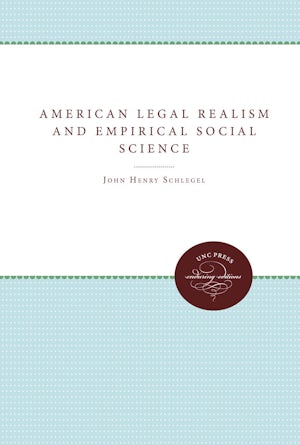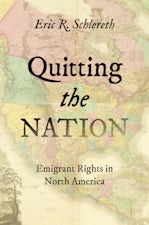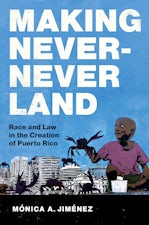American Legal Realism and Empirical Social Science
By John Henry Schlegel
432 pp., 6 x 9.25
-
Paperback ISBN: 978-0-8078-5753-3
Published: January 2011 -
E-book EPUB ISBN: 978-0-8078-6436-4
Published: November 2000 -
E-book PDF ISBN: 979-8-8908-6665-3
Published: November 2000
Studies in Legal History
Buy this Book
- Paperback $60.00
- E-Book $29.99
Originally published in 1995.
A UNC Press Enduring Edition -- UNC Press Enduring Editions use the latest in digital technology to make available again books from our distinguished backlist that were previously out of print. These editions are published unaltered from the original, and are presented in affordable paperback formats, bringing readers both historical and cultural value.
About the Author
John Henry Schlegel is professor of law at the State University of New York at Buffalo.
For more information about John Henry Schlegel, visit
the
Author
Page.
Reviews
"A masterful study. . . . Every law and social science researcher should read the book. . . . It is a brilliant book, and a wonderful 'read.'"--Law and Politics Book Review
"American Legal Realism and Empirical Social Science is a refreshing and insightful analysis of the origins, flowering, and demise of 'legal realism.' . . . His book succeeds admirably not only in expanding our understanding of legal realism but also in illuminating both the cultural evolution of the profession of law teaching and the course of academic legal thinking in the twentieth-century United States. . . . Schlegel has written a thoroughly researched, perceptive, and provocative book that adds immeasurably to our understanding of legal realism and the culture of American law teaching. It should become a foundation stone for subsequent discussions of twentieth-century American legal thought and education."--Journal of American History
"Makes a valuable contribution to our understanding of American legal realism by recasting the 'ideas in context' approach to intellectual history. . . . Schlegel's study of these professors' and these institutions' engagement with social science is comprehensive and penetrating, providing a wealth of factual information and solid analysis."--American Historical Review
"Exceptionally thorough research, a riveting narrative style, some humor along the way, and a host of stimulating asides and suggestions for future work."--G. Edward White, University of Virginia
"Schlegel is the first historian of Legal Realism--the most influential movement of twentieth-century American legal thought--to recognize that the Realists were neither primarily legal philosophers nor theorists of the judicial role, but rather scholars who hoped to enlist social science in the cause of legal and social reform. Schlegel's story is basically a tragic one, of noble ambitions brought to shipwreck on opposition and indifference; but there are many comic moments too, and the book is great fun to read. At last we have the story of Realism as the Realists themselves would have written it--the story of who exactly the Realists were and the work they actually did."--Robert W. Gordon, Stanford Law School




